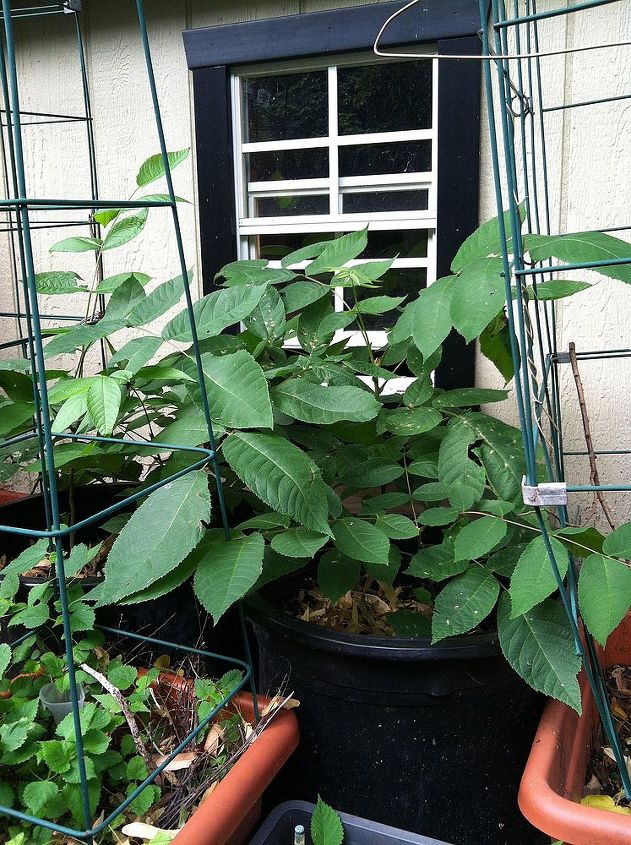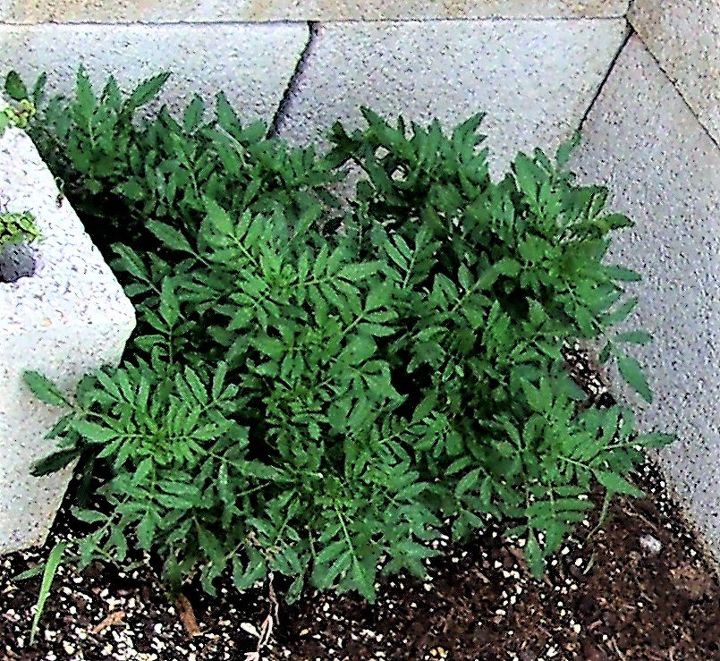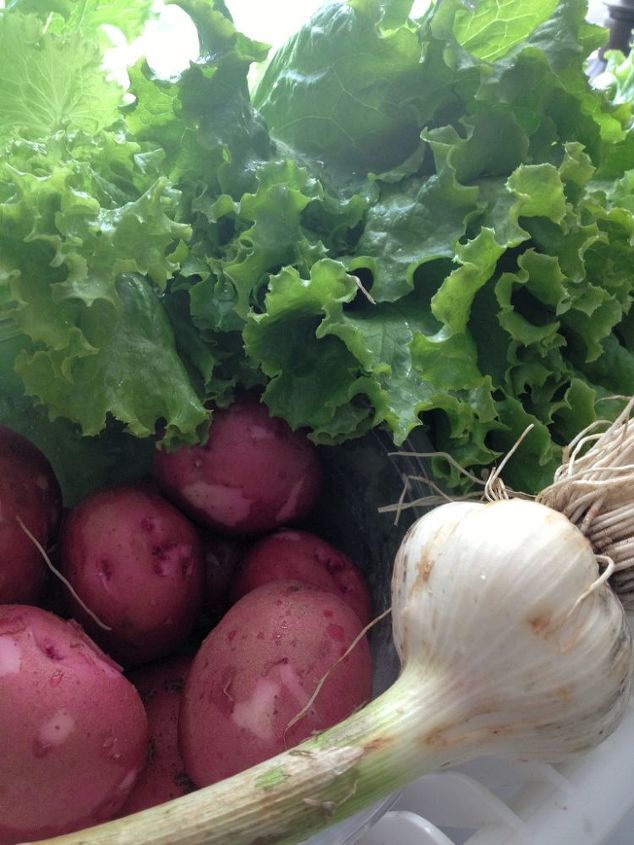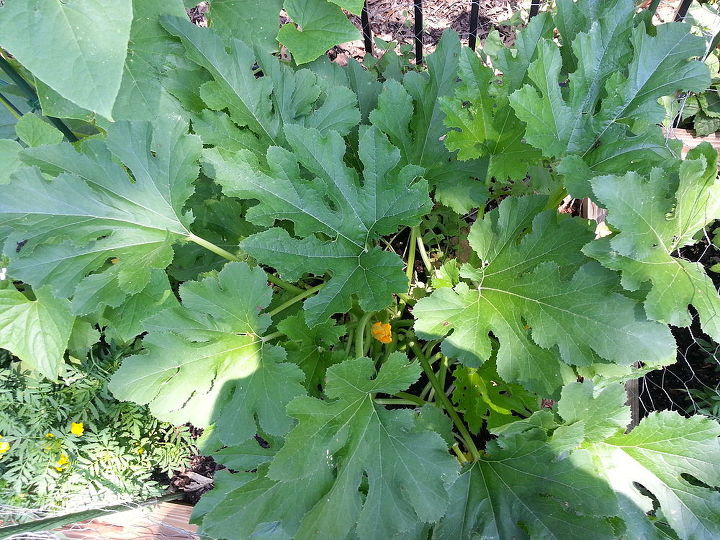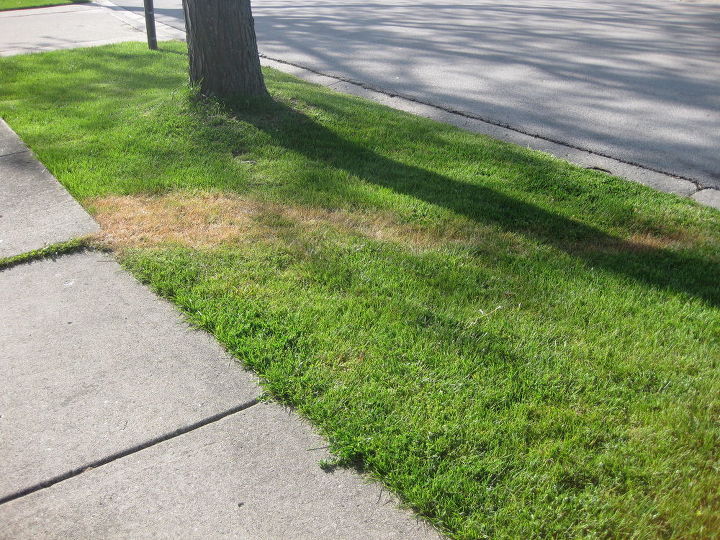Gardening: Are black walnut trees toxic to other plants nearby?

-
We have an Oak tree and then a Dogwood tree(both to the left of the small pond in the middle) and a small pond in the middle and then another Dogwood tree and then a Hickory nut tree to the right of the small pond.Does that make any sense? The leaves on the Dogwood tree that is next to the Hickory Nut tree shrivel up or curl up in response to the Hickory Nut tree.It looks so sad! The Dogwood that is next to the Oak tree is fine.We have lived here for 23 years and the Hickory and Oak trees were here when we moved in but we planted the Dogwoods shortly after we moved in as a birthday present for me one year.The one Dogwood tree is definitely affected by the Hickory Nut tree but it is surviving.I do believe that trees can put out toxins that can harm their neighbors. I used to have a book about that long ago but I can't remember the name of it.I hope this answers your question. Good Luck!:)
 Larose LoganOakes
on Jul 10, 2013
Helpful Reply
Larose LoganOakes
on Jul 10, 2013
Helpful Reply -
-
I have never heard of that if that is the case then it should kill the grass that grows around it!
 Patricia Brining
on Jul 10, 2013
Helpful Reply
Patricia Brining
on Jul 10, 2013
Helpful Reply -
-
Walnuts (and pecans) produce a toxin which affects the respiratory systems of certain plants. It is called JUGLAN and is produced in the roots, but present in all parts of the tree. It persists in the soil for up to 20 years AFTER the tree has died. Walnut leaves should not be used to compost susceptible plants. Walnut chips should not be used within 40' of susceptible plants. Susceptible plants include tomatoes, peppers, eggplants, apple trees, rhubarb, bleeding hearts. Juglan-tolerant species include melons, raspberries, cherries, plums, beans, beets, daylillies, hosta and strawberries. Check with any agricultural college in your zone for more. Personally, I find the nuts to be a hazard underfoot and curing them is time-consuming and complex. If black walnuts are native to your area, I suggest you ask your local forest preserve if they would like to accept your seedling. Many other plants produce chemicals to suppress competition from other plants as well as to discourage nibbling.
 Christa L
on Jul 10, 2013
Helpful Reply
Christa L
on Jul 10, 2013
Helpful Reply -
-
Christa's advice is spot-on.
 Douglas Hunt
on Jul 10, 2013
Helpful Reply
Douglas Hunt
on Jul 10, 2013
Helpful Reply -
-
Every part of the black walnut is toxic to many plants that cannot tolerate or survive the "juglone". It stays in the soil for decades, it odes not wash out or leach out of the soil. I learned the hard way after buying this "fixer-upper" of a property. If I could, I would cut down every one of them. Besides being toxic, they are messy. The nuts and stems mess up the yard. I had to make a raised vegies garden bed, a very high one so I can grow tomatoes, peppers, potatoes, things from the nightshade group because they will not grow in the toxic soil. There are no pines growing in the back where most of the b.walnuts are. None of the azaleas or rhodos survived, a waste of money and landscaping. My Mother's Day apple tree gift did not survive. I was flooded with plants as house warming gifts when I moved here, it broke my heart to loose so many of them. So, I had to do research to plant things that are tolerant of juglone.
 Peg
on Jul 10, 2013
Helpful Reply
Peg
on Jul 10, 2013
Helpful Reply -
-
Thanks everybody! Guess I have to find a place to plant that bad boy all by himself, or with other black walnuts. I'm not taking the risk with the other plants nearby.
 Marga
on Jul 10, 2013
Helpful Reply
Marga
on Jul 10, 2013
Helpful Reply -
-
Our property came with a couple mature Black Walnut trees. They now pop up everywhere around the pond every year! Squirrels & Birds love the trees for hiding.
 Dawn Neamon Enochs
on Jul 11, 2013
Helpful Reply
Dawn Neamon Enochs
on Jul 11, 2013
Helpful Reply -
-
Marga - I was flooded out by Hurricane Irene. I put up a few pics on here recently. My black walnut are so big, nothing would take them away or down!!
 Peg
on Jul 11, 2013
Peg
on Jul 11, 2013
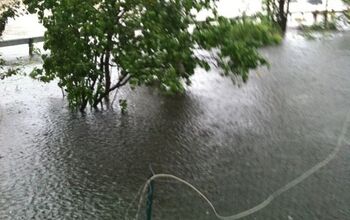 Helpful Reply
Helpful Reply -
-
I love the fact that they produce nuts for the squirrels, and shade for us! Their wood is great for lumber, but we are a small space and I'm pretty sure they take over our garden. Now I need to find a new home for it. Maybe a vacant lot!
 Marga
on Jul 11, 2013
Helpful Reply
Marga
on Jul 11, 2013
Helpful Reply -
-
yes, they are. Don't plant a vegetable garden near a black walnut tree. Nothing will do well.
 Virginia A
on Jul 11, 2013
Helpful Reply
Virginia A
on Jul 11, 2013
Helpful Reply -
-
Hello Marga! You might want to check this out: https://www.google.com/url?sa=t&rct=j&q=&esrc=s&source=web&cd=1&cad=rja&ved=0CC0QFjAA&url=http%3A%2F%2Fwww.ourstate.com%2Fblack-walnut-wilt-tomato-plants%2F&ei=muneUdL0CKPuyAHP2oD4AQ&usg=AFQjCNE4LdBfqMTK61sCPJRvqkio1k5zkA&sig2=5qngFhcldTCLkdtqCeeOag
 Larose LoganOakes
on Jul 11, 2013
Helpful Reply
Larose LoganOakes
on Jul 11, 2013
Helpful Reply -
-
When we built our home in the woods I had never heard of juglone or allopathic effects. For the first 5 years I thought my green thumb had turned black. It was only by accident that I learned about black walnuts when I kept loosing my azaleas, blueberries, tomatoes and potatoes. There are many plants that are compatible. Veggies - green beans, beets, carrots, sweet corn, melons, onions, parsnips & squash. Fruits - peach, nectarine, cherry, plum, wild grapes, black raspberries and blackberries. Hostas, hollyhock, columbine, astilbe, clematis, delphiniums, ginger, mums, common daylilies, coral bells, crocus, most grasses, Siberian iris, Virginia bluebells are among the many flowers that are compatible with walnut. Not only does the juglone stay in the ground for 20 years but it also effects incompatible plants 50-60ft away. You can find a lot of information on the internet about compatibility charts although some information is contradictory. Other varieties of walnut also have juglone but the black walnut is the strongest. Good Luck!
 Nancy Hatcher
on Jul 11, 2013
Helpful Reply
Nancy Hatcher
on Jul 11, 2013
Helpful Reply -
-
If I were you I would definitely take that Black Walnut and find a home for it elsewhere. We bought our house about 20 yrs ago and have two of those bad boys...one at the front of the property and one at the back. This year they have really tried our patience as we have seedlings popping up all over the place, from the squirrels carrying off the nuts and stashing them. They are coming up in most, if not all, of my flower beds, up against our outbuildings...they seem to be everywhere I look. We're getting our fill of trying to get rid of those seedlings as well as the nuts we find on the ground as fast as we can...AND needless to say the 2 main trees WILL BE CUT DOWN the first chance we get.
 LouAnn Edel
on Jul 11, 2013
Helpful Reply
LouAnn Edel
on Jul 11, 2013
Helpful Reply -
-
@Larose D. Logan-Oakes - Wow.. that link you posted states that the juglone substance even attacks soil planted in raised beds.. @Peg - I love how these trees are so resilient. But again, I am a community gardener in NYC and our space is too limited for such a powerhouse. Anyone want a black walnut? I've got one for you!!
 Marga
on Jul 11, 2013
Helpful Reply
Marga
on Jul 11, 2013
Helpful Reply -
-
Does the juglone from Black Walnut trees effect bird baths when the tree's leaves fall in the water?
 Sue2102060
on Aug 17, 2015
Helpful Reply
Sue2102060
on Aug 17, 2015
Helpful Reply -
Related Discussions
GNATS - How to get rid of them?
Somehow my house and garden got tiny gnats that killed my fuchsia plant and fly everywhere. I have tried ALL the Web recommendations - soap and oil dishes, sand in th... See more
Marigolds growing! Should I pinch the buds?
My marigold plants are growing. I heard that pinching the buds until Autumn will allow them to grow without killing the plant. Is this true?
Growing garlic
Growing our first garlic, should we wait until the leaves are drying out before we pick it? Husband picked first one today along with our first potatoes.
How to keep mice out of your garden?
Hi everyone, I have mice in my garden destroying my vegetables and I have also noticed them in the barn and shed. Please can someone tell me how to prevent them from ... See more
What's the best flower/plant to grow in Texas?
I know that opinions vary, but what's your opinion?!I have great luck w Rosemary plants. Green all year long.
Squash Plants Large and Healthy and no Squash Growing?
2nd Season in a ROW! Squash plants growing large and healthy leaves and the stems near the roots are looking healthy and turning dark green, getting flowers that grow... See more
Trail of dead grass mystery?
Trail of dead grass appeared two weeks ago that starts in neighbor's yard and goes to the sidewalk, then continues past the sidewalk in a line into the grass into my ... See more
